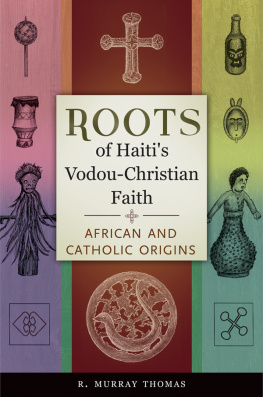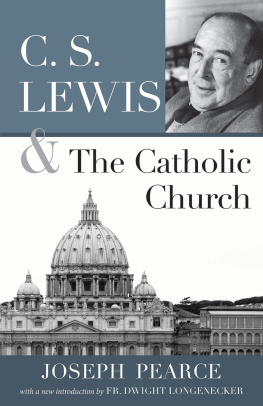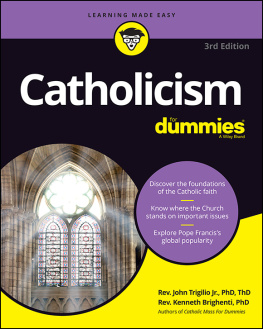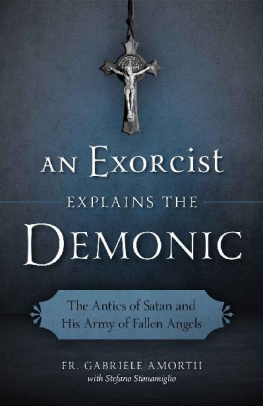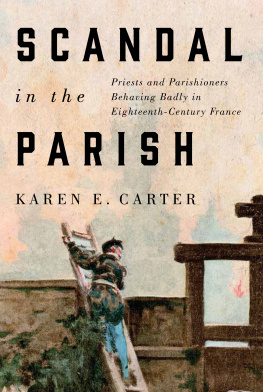About the Author
R. MURRAY THOMAS, PhD (Stanford University), is professor emeritus of educational psychology and international education at the University of California, Santa Barbara. His published books include Manitou and God: North-American Indian Religions and Christian Culture; Religion in Schools: Controversies Around the World; Oriental Theories of Human Development (Hinduism, Buddhism, Confucianism, Shinto, Islam); God in the Classroom: Religion and Americas Public Schools; An Integrated Theory of Moral Development; and What Wrongdoers Deserve .
This book is the result of my first attempt to seek answers to two questions:
What, precisely, is the dominant form of religion in the nation of Haiti?
From what sources has that religion evolved?
I began the search for answers by surveying the published literature, an effort that yielded the following sort of information:
It is sometimes said that Haiti is 90 percent Catholic and 100 percent voodoo; this statement is not, of course, entirely accurate, but nevertheless it does emphasize the fact that the duality in Haitian religious history has never been a confrontation between two separate groups of people. Almost all voodoo adherents would call themselves Catholics, and most Catholics practice voodoo. (Nicholls, 1970)
Haitian Voodoo is believed to have started in Haiti in 1724, in the form of a snake cult that worshipped many spirits. The practices of this cult were intermingled with many Catholic rituals and saints, forming Haitian Voodoo. (Dakwar & Wissink, 2004/2009)
According to Jules Anantua, head of the Haitian Ministry of Cults, Voodoo has always been practiced clandestinely, first by the slaves brought here from Africa, but even after independence [in 1804], because Catholicism became the official religion in Haiti in 1860. In order for voodoo to survive, it had to borrow symbols from the officially recognized religion [Catholicism]. Most voodoo spirits have their counterparts in Christian saints. (Williams, 2003)
Today, most of the Catholic saints have been appropriated as African loa [spirits] in the minds of the Haitian peasants. Thus Legba, the Vodun god of communications, is also the Catholic Saint Peter, the one who holds the keythe one who opens barriers to communication between God and humans. His symbol is a cross, which, for the vodunsi, represents the crossroads; to the Catholic, it is the cross of Jesus. Damballah-Wedo, the serpent deity of Dahomey, is associated with Saint Patrickthe saint who walked on the snakes. Shango, the god of lightning and thunder, is Saint John the Baptist, who, according to tradition, controls the storm clouds.... These are only a few of the subtle borrowings or one-dimensional syncretisms that have operated whenever African religions confront other religions. Unlike Catholicisms inflexible dogma, African religion is protean, always adding to its form selective aspects of other religions without endangering its function. (Lippy & Williams, 2010)
There are some anthropologists who believe that some Voodoo rites, and especially the Petwo Voodoo rites, might have their origins in [Native-American] Arawak/Taino religion, but this is speculative. (Corbett, 1988)
In 2012, the World Factbook estimated the religious affiliation of Haitians to be: Roman Catholic 80%, Protestant 16% (Baptist 10%, Pentecostal 4%, Adventist 1%, other 1%, none 1%, other 3%). About half of the population also practices Vodou. (Haiti, 2012)
Although I found such observations enlightening, they failed to tell in detail what I had hoped to learn. I now had further questions to askones that I would be obliged to answer by conducting an extensive investigation of the research literature about traditional African religions and Catholicism, thereby generating from the resulting information a series of principles that might account for the curious nature of Haitis combined Vodou/Christian faith. The chapters of this book explain in detail what I have discovered.
To prepare readers for what to expect in the following pages, I offer guidance in the form of answers to three questions.
What, exactly, is the connection between indigenous African religions and Vodou?
Vodou itself is a belief system patched together from segments of different traditional African faiths that slaves brought from Africa to the Caribbean during the 16th through the 18th centuries. The slaves had been captured from various African ethnic regions where the people of each district or village subscribed to their own particular faiths. When such a potpourri of Africans settled in Haiti, their religious beliefs gradually altered, with some versions becoming more dominant than others and forming a commonly held mix. That mix assumed the title Vodou , a Haitian Creole term derived from the West African Ewe word vodu or Fon word vodun , meaning spirit .
In what ways are Vodou and Catholicism alike and different?
The detailed answer will be found in . However, the short answer is that while the two traditions are alike in numerous aspects, their organizational structures are dramatically different. Local Vodou groups are independent and operate on their own. In marked contrast, Catholicism has a monolithic worldwide organization that operates through a hierarchy of decision making that is headquartered in Rome. A second significant difference between Vodou and Catholicism is in their modes of conveying religious lore from one generation to the next and from one place to another. Catholicism is grounded in written documents that are formally approved, whereas African and Vodou beliefs have traditionally been passed orally; such beliefs depend for their authenticity on the memories and motives of both the religious leaders and common devotees.
By what form of logic could rational humans subscribe simultaneously to such contrasting worldviews as those of Vodou and Catholicism?
This question was at the forefront of my mind as I conducted the investigation that led to the contents of . As I worked through those chapters, I generated seven principles of accommodation that I believe help render Haitis Vodou/Christian faith a rational belief system. It was only near the end of my study that I could complete the series of principles. However, I introduce them at this point in order to alert readers to the basis of the interpretations that close each of the chapters from 3 through 11interpretations founded on the seven principles.
The in-name-only principle: When elements of two religions have the same meanings but bear different names, those elements can compatibly coexist within a combined belief system.
Example: In both Vodou and Christianity, there is an invisible, all-powerful Supreme Being who created the universe. Therefore, the Vodou name Bondye ).
The nonconflicting-add-ons principle: If a novel belief from Religion A does not contradict or violate any belief of Religion B, then the novel belief can be accepted by devotees of Religion B.
Example: The notion of a virgin giving birth is not part of traditional African religions, so the Christian belief that Jesus birth resulted from an immaculate conception does not contradict any Vodou beliefs and thus can be included within a Vodou/Christian faith ().
The variations-on-a-theme principle: Religions that share the same basic belief (same theme), but manifest that theme in different practices, can exist comfortably together.
Example: A basic belief (theme) held in many religions is that a person who ingests a powerful beingsuch as an animal or humanacquires some of that beings power. In keeping with this theme, a familiar ritual in African religions involves killing an animal, then drinking its blood, and/or eating its flesh. A familiar Christian ritual is the Eucharist, which involves adherents drinking wine that represents Jesus blood and eating pastry that symbolizes his flesh ().
Next page
